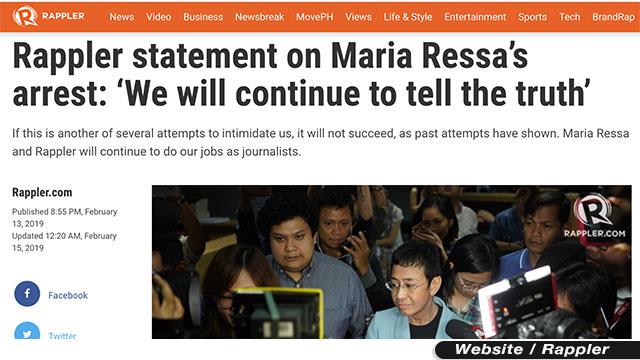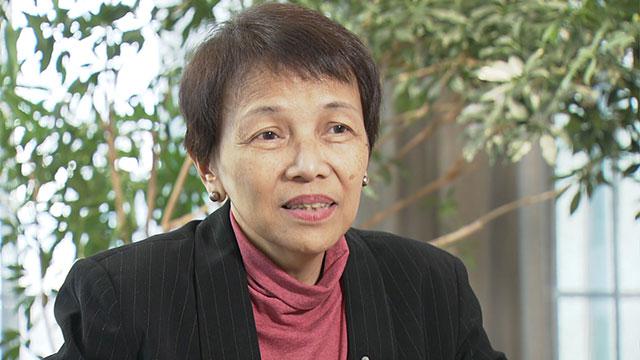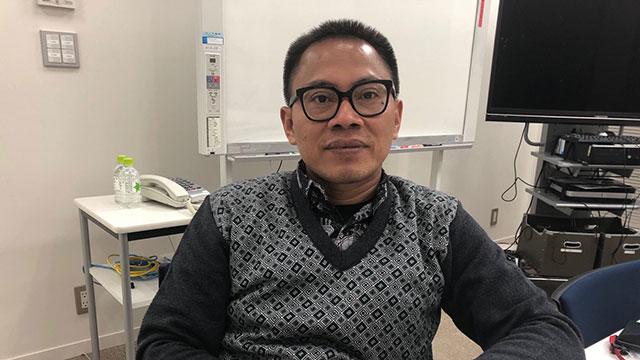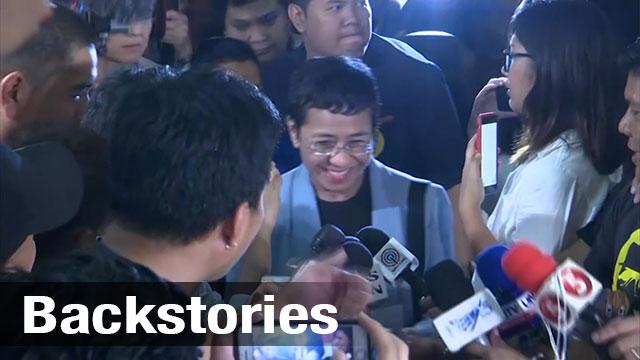Imminent situation in the Philippines
In February, renowned Philippine journalist Maria Ressa was arrested for cyber libel and released after a night in custody. She is the CEO and executive editor of Rappler, an online news website known for its critical view of President Rodrigo Duterte’s war on drugs, which has also been condemned by the international community. Ressa was among those named Time Magazine’s " Person of the Year " for its reporting last year.
Rappler published a statement immediately, calling the allegations "preposterous." Rights groups have criticized Ressa’s case as politically motivated.

In February, an editor at the website, Marites Vitug, visited Japan and talked to NHK about the current situation of press freedom in the country.
"Actually, it was a surprise when Maria was arrested because we had no early information," Vitug said. She said the staff immediately began to report on the incident as it unrolled. "A lot of the reporters came to cover the event and express support for Rappler and for Maria. It was also on social media. So there was a lot of sympathy for Rappler and Maria."
She explained that President Duterte has enjoyed a high approval rating despite his intimidations and harassment of the media. She says journalists are subjected to threats by supporters of the president.
"The threats come from fake accounts on social media. Rappler was able to trace some of these accounts, and they were fake, and the suspicion is they are funded by the government." Vitug adds, "In fact, it is the office of the president which is the source of disinformation -- even the president himself sometimes."

To combat them, Rappler has put emphasis on fact-checking. "We get information from people who say, 'Please check this, this is false,' or Rappler reporters themselves check social media and news. So it goes both ways. And if you check the website of Rappler, it has categories of fact-checking. There are completely false stories, misleading stories, stories that need context, and hoaxes."
Vitug says that fake news increases during elections. "In 2016, during the presidential campaign, that's when we saw a lot of fake news. For example, there was a news story posted on social media saying that the Pope was endorsing Duterte, which was denied, or the prime minister of Singapore was endorsing Duterte. So we should expect, we will expect and we are ready for fake news in upcoming elections."
"Rappler and many other news organizations and universities have organized fact-checking for the 2019 midterm elections. It is a big group, and we hope they will continue to do fact-checking after the elections," she says.
She explains that Rappler is also involved in seminars to teach students, teachers and local journalists what to do about fake news.
Rappler is prohibited from covering the president now. But she says the company tries to keep an eye on the country’s politics through the live streaming of the president’s speech and by obtaining information from other sources.
"This is the first time in more than 30 years that we are experiencing this -- that the president of the Philippines is autocratic, intolerant of criticism from the media, also from his opponents. So he uses state agencies to go against independent media."
Vitug says it's a very difficult time for the Philippines, and adds that Rappler will continue to work for press freedom in the country.
"Far from good" in Indonesia
NHK also spoke to the head of an independent journalist’s association in Indonesia on the issue. Abdul Manan is the chairman of the Alliance of Independent Journalists, or AJI, in the country. It was established in 1994 after the Suharto government banned three media companies from publishing in the country.
Manan says, "During the Suharto era, one my focuses was fighting for press freedom. This was the big challenge for AJI at the time. We focused on press freedom and we needed to fight the pressure from the government. After 1999, press freedom has been one of our focuses, but we also have two other objectives: promoting professionalism and fighting for journalists’ welfare. The two are big challenges for Indonesian journalism. In 2000, one year after the press law was created, there were almost 2,000 newspapers in Indonesia. During the Suharto era, there were only 230. There are no limitations on license to publish, but the industry is mostly underpaid. So that’s why journalists’ welfare is a big issue for AJI."

He describes the current media situation in the country as "far from good." The country ranks 124th in the 2018 press freedom ranking by Reporters Without Boarders. He says that the main reason is the regulation of the press.
"Indonesia still has at least two regulations that threaten journalists and could easily send them to jail. One says that publishing secretive information, lying, and defaming a foreign leader is a criminal offense. The second regulation that threatens journalists is the information and electronic transactions law. This is actually a new law from 2008."
Manan adds that AJI confirms about 40 to 80 cases of violence against journalists every year in the country.
Challenges for press freedom
According to the world press freedom index by Reporters Without Borders, many countries in Asia rank lower. Even in the countries which are considered to have higher press freedom, however, there have been cases of people in power attacking media or sabotaging media coverage openly. In addition, tackling fake news has become a global challenge. Fake or misleading news can come from authorities, so it's becoming increasingly important to check facts and gain the ability to detect the truth with our own eyes.

